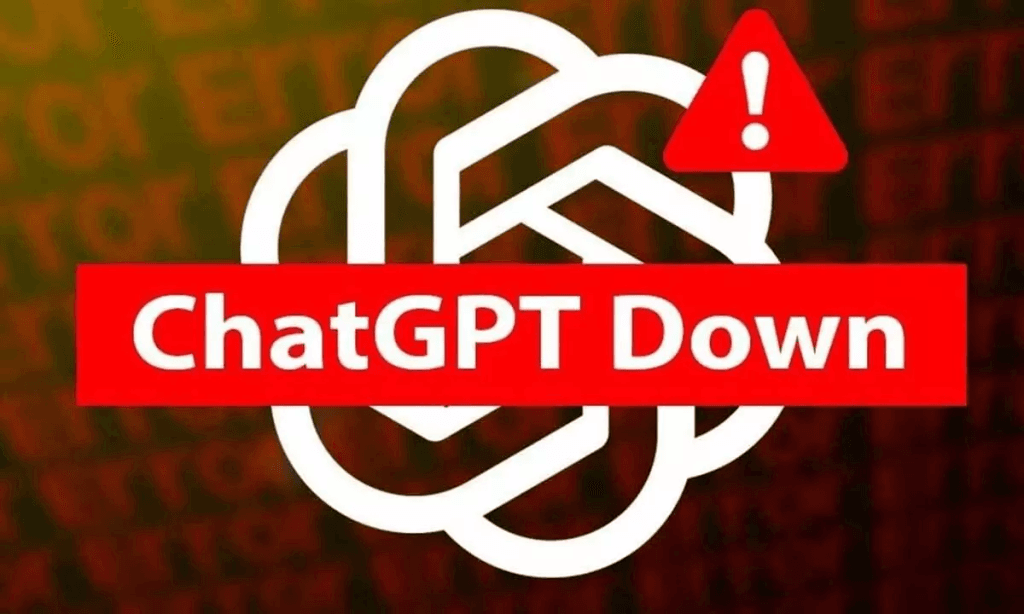Artificial intelligence has rapidly become a daily companion for millions across the globe. Among the most widely used AI tools is ChatGPT, developed by OpenAI, which has revolutionized how people work, learn, and communicate. However, on [insert date if needed], users around the world experienced a sudden and unexpected outage, leaving them unable to access the chatbot. From students and professionals to businesses relying on AI-powered workflows, the disruption caused noticeable inconvenience.
This blog explores the details of the outage, its impact, user reactions, the potential technical causes, and what this means for the future of AI reliability.
The Outage: What Happened?
Reports began surfacing across social media platforms such as X (formerly Twitter), Reddit, and LinkedIn that ChatGPT had suddenly gone down. Many users reported either being unable to log in, receiving error messages, or facing unusual lag and disruptions in generating responses.
Downdetector, a popular platform that tracks online service outages, showed a sharp spike in complaints within minutes, indicating the problem was not localized but widespread. The outage appeared to affect users in North America, Europe, Asia, and parts of Africa, making it a global disruption.
While OpenAI has not always been quick to disclose technical issues in real time, early speculation pointed toward possible server overload, API malfunctions, or cloud infrastructure failures as potential reasons.
Why This Matters
ChatGPT is more than just a casual tool for asking questions. It has become deeply integrated into personal and professional workflows. Here are a few areas where the outage had noticeable effects:
1. Education and Learning
Students who use ChatGPT for study assistance, assignments, or research found themselves cut off mid-task. With exams and deadlines always around the corner, the disruption was especially frustrating.
2. Business and Productivity
Companies that rely on ChatGPT for drafting emails, brainstorming campaigns, or generating code snippets faced interruptions. Startups and freelancers, who often rely heavily on AI for speed and efficiency, also reported difficulties continuing their work.
3. Customer Support Systems
Many businesses integrate ChatGPT into customer service solutions. The outage may have indirectly affected end-users interacting with AI-powered chatbots on websites, further widening the impact.
4. Casual Users
Even those who use ChatGPT for fun, such as generating stories, jokes, or daily advice, took to social media to share their disappointment, often with memes highlighting their dependency on the tool.
User Reactions on Social Media
Social media platforms were flooded with real-time updates from frustrated users. Some expressed genuine concern over their work being interrupted, while others turned the outage into humor.
- Memes & Jokes: Many users compared the outage to the feeling of losing internet access altogether.
- Dependence Acknowledged: Tweets and posts reflected just how integrated ChatGPT has become in daily life, with many admitting they felt “stranded” without it.
- Comparisons with Other Outages: Several users compared this event to notable tech outages like WhatsApp, Facebook, or Gmail downtime, highlighting how dependent society has become on digital services.
Interestingly, some users also used alternative AI tools such as Google Gemini, Claude, and Perplexity AI to temporarily fill the gap.
Possible Causes Behind the Outage
Although OpenAI had not issued a detailed technical explanation at the time of reports, experts and tech enthusiasts speculated on the possible causes:
- Server Overload
With millions of daily active users, sudden spikes in traffic—possibly due to new feature rollouts or global work schedules aligning—can overwhelm servers. - Cloud Infrastructure Glitches
ChatGPT runs on large-scale cloud infrastructure, and a breakdown in servers, load balancers, or regional data centers could lead to disruptions. - API Malfunction
Many developers and businesses use the ChatGPT API. An error at the API level could ripple through both direct users and integrated third-party services. - System Updates or Maintenance
Sometimes outages occur when backend updates are pushed. Even with precautionary testing, unexpected bugs can create widespread downtime.
The Broader Impact of AI Outages
This incident raises an important question: How reliable should AI be when people rely on it daily?
Unlike social media outages, which primarily disrupt communication and entertainment, AI tool outages can halt productivity, delay learning, and even cost businesses revenue. The dependency on AI has created a scenario where downtime can feel almost as disruptive as power cuts or internet failures.
For industries increasingly shifting towards automation and AI-driven solutions, this is a wake-up call. Companies must build contingency plans and avoid over-reliance on a single platform.
OpenAI’s Response
While users waited anxiously, OpenAI typically provides updates through its official status page and social media accounts. In previous outages, the company has been transparent about causes—ranging from server maintenance to unexpected bugs—and assured users of rapid recovery.
Given the scale of this outage, it is likely that OpenAI engineers were working around the clock to restore services. The company also maintains redundancies and backup systems to minimize downtime, but as seen, no system is entirely immune.
Competitor Advantage: Did Others Gain?
Whenever ChatGPT experiences issues, competitors like Google Gemini, Anthropic’s Claude, and Perplexity AI see temporary boosts in traffic. This outage once again opened conversations about AI diversity, with users realizing the need for alternatives rather than depending solely on one platform.
In fact, some users posted that they had, for the first time, tried other chatbots and were surprised by their performance. This highlights how outages can inadvertently benefit competitors while putting pressure on OpenAI to maintain reliability.
Lessons from the Outage
The outage serves as a reminder of three key points:
- Redundancy is Critical
Both providers like OpenAI and end-users must develop backup systems. Businesses relying heavily on ChatGPT should integrate at least one alternative AI model. - Transparency Builds Trust
Users appreciate honesty. OpenAI’s communication during such events can make a significant difference in user confidence. - AI as a Utility
The incident highlighted how AI is now viewed as an essential utility, similar to electricity or internet. With this elevated role comes a responsibility for providers to ensure uptime and reliability.
Looking Ahead: Building More Reliable AI
The outage will likely prompt OpenAI to further strengthen its infrastructure resilience and disaster recovery protocols. As competition in the AI space heats up, companies know that reliability could be as critical as innovation in retaining users.
For users, this might also be the moment to rethink their relationship with AI. While these tools are powerful assistants, maintaining flexibility and adaptability remains essential.
Conclusion
The sudden and widespread outage of ChatGPT served as a stark reminder of how deeply AI has woven itself into modern life. From education to business productivity, the disruption was felt across industries and continents. While outages are inevitable in technology, the scale of dependency has raised concerns about AI reliability and continuity.
As OpenAI works to restore services and prevent future incidents, users may explore alternatives and rethink their reliance on a single platform. In the bigger picture, this event reflects not just a technical glitch, but a societal shift—where the absence of AI for even a few hours can feel like losing an indispensable resource.










